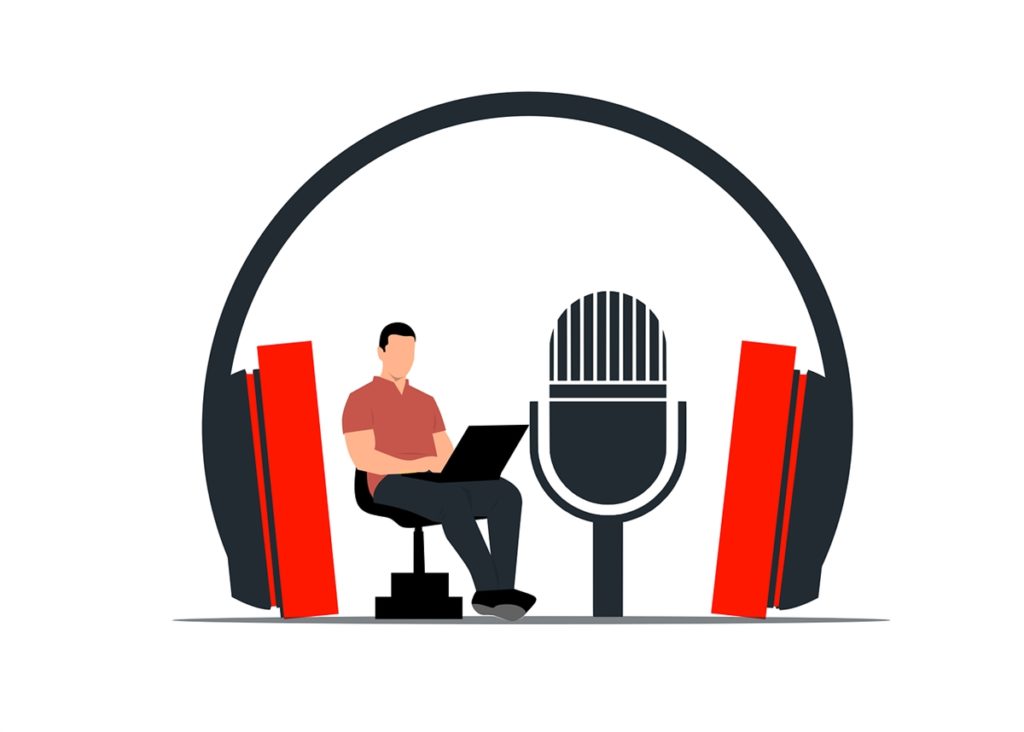Podcasting has emerged as a popular form of content delivery, offering audiences the ability to consume content at their convenience. As of 2023, more than 2 million podcasts and over 48 million podcast episodes exist, according to Podcast Insights. If you have a unique idea, perspective, or expertise that you believe would captivate listeners, starting your podcasting business could be an excellent venture.
However, creating a successful podcast requires more than a great concept. It necessitates strategic planning, sound technical understanding, and consistent execution. This guide outlines nine comprehensive steps to kickstart podcasting business, followed by insights into the potential financial rewards and legal considerations for your podcast in the UK, USA, and EU.
Step 1: Conceptualize Your Podcast
Before hitting the ‘record’ button, you must first establish a clear vision of what you want your podcast to be. This involves considering what subject or niche your podcast will cover and how it will be presented. Will it be a solo podcast or will it feature co-hosts or guests? Will it be educational, inspirational, or purely entertainment? You also need to decide on the frequency of episodes and the typical episode length.
This is an essential step as it lays down the foundation of your podcasting venture, provides a roadmap, and sets the expectations for your audience. Additionally, identifying your target audience during this phase will help tailor your content and marketing strategy effectively.
Step 2: Develop Your Content
Once you’ve established the concept, it’s time to delve into content development. Depending on the format of your podcast, this could involve writing detailed scripts, creating outlines for each episode, or preparing questions for interviews. This step demands a lot of creativity and research to ensure your content is engaging, relevant, and offers value to your listeners.
This process starts with brainstorming topics that align with your podcast’s overall concept. Once you’ve identified potential topics, delve deeper and structure them into a format that works well in the auditory medium of podcasting.
If your podcast is a monologue or co-hosted, you might want to create a detailed script to ensure you cover all key points during your recording. However, it’s important to maintain a conversational tone to keep your podcast engaging. Practicing your script before recording can help you achieve a natural delivery.
In case your podcast features interviews, rather than writing a full-fledged script, you’ll need to prepare a list of questions or talking points. Research your guests thoroughly to ask insightful questions that they haven’t answered numerous times before. Remember, the aim is to generate valuable insights and interesting anecdotes for your listeners.
Apart from individual episodes, you should also plan the overall content arc if your podcast follows a serial format. This involves outlining the progression of the season or series, ensuring each episode contributes to the bigger narrative.

It’s also advisable to plan and develop content for multiple episodes before launching your podcast. This not only allows for a smoother launch but also gives you a buffer for your content creation schedule.
When developing content, always keep your audience in mind. Understanding their interests, concerns, and preferences will enable you to create content that attracts and retains listeners. Use feedback and analytics to refine your content strategy over time.
Lastly, don’t forget to incorporate calls-to-action in your episodes. This could include prompting listeners to subscribe, share, leave a review, check out your website, or follow you on social media. This engagement can help grow your podcast and create a loyal listener community.
Step 3: Choose Your Equipment
The quality of your audio can make or break your podcast. You don’t need a professional recording studio, but investing in a good quality microphone is crucial. USB microphones are a great choice for beginners due to their ease of use and affordable price. Additionally, headphones for monitoring audio and editing software to refine your recording are also vital.
Some popular free editing software includes Audacity and GarageBand (for Mac users). Also, a pop filter, which reduces unwanted noise from your speech, can be beneficial. As you advance, you may consider upgrading your equipment to enhance your audio quality further.
Step 4: Record Your Podcast
Recording your podcast involves more than just pressing the ‘record’ button. Choosing a quiet location with minimal background noise is crucial. You also need to consider your microphone technique—speaking too close may cause distortion, while speaking too far may make your voice sound faint.
Keep a steady pace and make sure to enunciate clearly. Don’t worry about making mistakes; you can always edit them out later. With time and practice, you’ll become more comfortable and your recordings will sound more natural.
Step 5: Edit Your Podcast
Editing is where your podcast truly comes to life. It involves refining the audio, cutting out mistakes or unnecessary parts, and adding elements like music, sound effects, and voiceovers. The goal is to ensure the final product sounds polished and professional.
Software like Audacity or GarageBand can do the job for beginners, while Adobe Audition or Pro Tools offer more advanced features. While editing can be labor-intensive, especially at the beginning, it’s a crucial step in the podcasting process.
Step 6: Create Your Podcast Brand
Your podcast’s brand should reflect the personality and content of your podcast. This includes creating a catchy and descriptive name, designing a visually appealing logo, and writing a compelling podcast description. These elements are typically the first things potential listeners see, so they play a crucial role in attracting and enticing people to listen to your podcast.
If you’re not skilled in graphic design, consider hiring a professional to create your logo. Remember, your podcast’s brand should resonate with your target audience and set the tone for your content.

Step 7: Set Up Hosting and RSS Feed
Once your episodes are ready, you’ll need a place to store them and an RSS feed to distribute them. Podcast hosting platforms serve both these needs. They store your audio files and generate an RSS feed—a special type of web page that allows podcast directories to access and distribute your episodes.
Popular hosting platforms include Libsyn, Podbean, and Buzzsprout. When choosing a host, consider factors like storage limits, bandwidth, cost, and the user interface.
Step 8: Submit Your Podcast to Directories
After setting up your podcast host and RSS feed, the next step is to submit your podcast to podcast directories. These platforms, such as Apple Podcasts, Spotify, and Google Podcasts, are where people go to listen to podcasts. When you submit your RSS feed to these directories, they’ll automatically update whenever you release a new episode. Each directory has its own submission process and guidelines, so be sure to review them carefully.
Step 9: Promote Your Podcast
Finally, you need to get the word out about your podcast. Utilize various marketing channels like social media platforms, your own website, and email newsletters. You could also consider cross-promotions with other podcasters or influencers in your niche. Creating engaging content related to your podcast—such as blog posts, infographics, or videos—can help draw attention to your podcast.
Consider also leveraging SEO (Search Engine Optimization) and ASO (App Store Optimization) strategies to increase your podcast’s visibility online. Don’t be shy about asking your listeners to leave reviews or share your podcast, as this can significantly enhance your reach.
How Much Money Can You Make From a Podcast?
Podcast revenue varies greatly, depending on factors like audience size, sponsorship deals, and monetization methods. According to AdvertiseCast, the industry average in the US is $18 for a 30-second ad and $25 for a 60-second ad per 1,000 listeners. Successful podcasters can also earn significant income through listener donations, merchandise sales, live shows, and premium content.
In the UK, podcast advertising spend is predicted to increase to £33.6 million in the next years, according to PwC. This indicates a promising future for UK podcasters. Similarly, in the EU, where podcast popularity is steadily growing, podcasters can potentially generate substantial revenue, although exact figures vary based on local market conditions.
How Can You Protect Your Podcast Name?
Protecting your podcast name is important to establish your brand. In the US, you can register a trademark with the United States Patent and Trademark Office (USPTO). In the UK, you can register your trademark with the Intellectual Property Office. In the EU, you can register an EU trademark through the European Union Intellectual Property Office (EUIPO).
Obtaining trademark protection can prevent other businesses from using your podcast name, providing legal recourse if someone infringes upon your trademark. It’s advisable to consult with an intellectual property lawyer to understand the best strategies for your specific situation.
